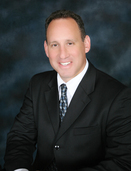Born in Jerusalem on March 1, 1922, the child of immigrants from Eastern Europe, he was from boy hood a steadfast Zionist. He was not even out of his teens when he became a commando in Hagganah, the Jewish under ground army fighting the Axis powers in what was then British-ruled Palestine. After World War II and the formation of the Jewish nation, his reputation as a soldier and strategist earned him a place in the Israeli military establishment, where he eventually rose to become chief of staff. Rabin oversaw Israel's sweeping victory in the Six Day War of June 1967. He served a term as Israel's ambassador to the United States, and in 1973 returned to Jerusalem to run for a seat in the Knesset as a member of the Labor Party, just in time to benefit from criticism of other Israeli leaders for military unreadiness in the costly Yom Kippur war. In 1974 he took over his party, and became Prime Minister—the first sabra, or native-born Israeli, to hold that job.
Rabin's tenure was a difficult one. Deeply suspicious by nature and convinced of the virtue of overwhelming military power, he thought that hopes for Mideast peace were unrealistic. A stable state of non-belligerence was the best that could be achieved. Despite some success in controlling Israel's perennially troubled economy, Rabin lasted only three years as prime minister. He stepped down in 1977, following charges of corruption in his government.
By 1984 he was back in power as defense minister in a coalition government, and began his political rehabilitation. He also underwent a change of heart. In 1987 the Palestinian intifada began and he evolved toward the view that a political solution must involve territorial concessions.
After elections in June 1992, the Labor Party was able to form a government, and Rabin became top leader again. The next year, after secret talks with the PLO in Norway, he signed an agreement for eventual Palestinian self-rule in the occupied territories. In his unforgettable speech on the White House lawn after a reluctant handshake with PLO chairman Yasir Arafat, Rabin said:
“We have come from Jerusalem, the ancient and eternal capital of the Jewish people. We have come from an anguished and grieving land. We have come from a people, a home, a family, that has not known a single year - not a single month - in which mothers have not wept for their sons. We have come to try and put an end to the hostilities so that our children and our children's children will no longer have to experience the painful cost of war, violence, and terror….
Let me say to you, the Palestinians: We are destined to live together, on the same soil in the same land. We, the soldiers who have returned from battle stained with blood, we who have seen our relatives and friends killed before our eyes, we who have attended their funerals and cannot look into the eyes of their parents, we who have come from a land where parents bury their children, we who have fought against you, the Palestinians - we say to you today in a loud and clear voice: Enough of blood and tears. Enough.”
Twenty years ago the world lost one of its greatest leaders, when Yitzhak Rabin was shot and killed at that rally for peace, Saturday, Nov. 4, 1995. Murdered by an Israeli opposed to concessions. Immediately following the assassination, President Bill Clinton's delivered a powerful eulogy in which he said:
“The world has lost one of its greatest men, a warrior for his nation's freedom and now a martyr for his nation's peace….Let me just say "shalom chaver." Good-bye, friend.”
As we prepare to vote in our November elections, we remember the great heroes of democracy, and consider what a special privilege we have living in a land where our voices count. Recalling what is at stake in our country and around the world we honor Rabin the great soldier and leader, who anticipated the hazards of war, as well as peace. He believed peace was worth the risk, worth his life. We keep the dream of peace alive, join us at Temple Beth Ami as we commemorate Yitzhak Rabin’s Yahrtzeit, during our New Member Shabbat Service, Friday, November 6 at 8:00 PM.


 RSS Feed
RSS Feed
